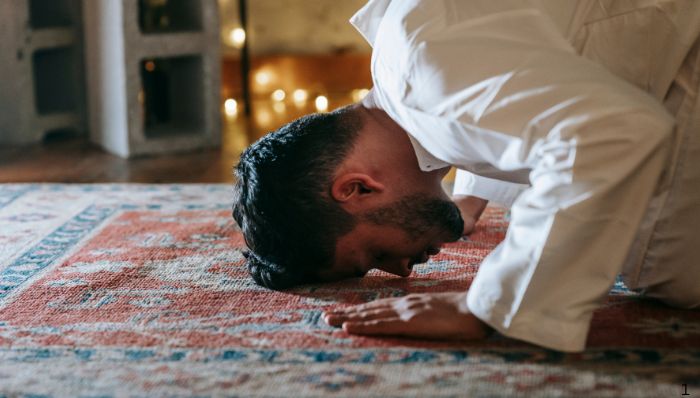What are Prayer Times?
Prayer times, also known as Salah times or Namaz times, are specific times of the day when Muslims perform their daily prayers. In Islam, there are five main prayers that Muslims pray every day:
- Fajr (early morning prayer)
- Dhuhr (midday prayer)
- Asr (afternoon prayer)
- Maghrib (sunset prayer)
- Isha (night prayer)
These prayer times change every day because they’re based on the position of the sun in the sky. That’s why it’s important to have an accurate prayer time schedule or timetable.
Why are Prayer Times Important?
Prayer is one of the Five Pillars of Islam. It’s a way for Muslims to connect with Allah (God) and remember Him throughout the day. Praying at the right times shows our dedication and helps us structure our day around our faith.
Prayer Times in Doha, Qatar
Now, let’s talk specifically about prayer times in Doha, the capital city of Qatar. Doha is a beautiful city with many mosques, and you can often hear the Azan (call to prayer) ringing out across the city five times a day.
Today’s Prayer Time Doha
If you’re reading this today, you might be wondering, “What are the prayer times for today in Doha?” Well, the exact times change every day, but here’s a general idea of when the prayers usually happen. You can check the exact timings above.
- Fajr: Usually between 3:30 AM and 5:30 AM
- Sunrise: About 1.5 hours after Fajr
- Dhuhr: Around midday, often between 11:30 AM and 1:30 PM
- Asr: In the afternoon, typically between 2:30 PM and 4:30 PM
- Maghrib: Right at sunset, which changes throughout the year
- Isha: About 1.5 hours after Maghrib
Remember, these are just rough estimates. For accurate times, it’s best to check our Doha prayer time calendar.
How Prayer Times Change Throughout the Year
Have you ever noticed that Maghrib prayer is much later in the summer than in the winter? That’s because prayer times are based on the sun’s position, which changes with the seasons.
In Doha, during the summer (June-August):
- Days are longer
- Fajr is very early (sometimes before 3:30 AM)
- Maghrib can be as late as 6:30 PM
During the winter (December-February):
- Days are shorter
- Fajr is later (sometimes after 4:30 AM)
- Maghrib can be as early as 4:45 PM
This is why it’s important to check the prayer times regularly, especially as the seasons change.
Special Times: Ramadan Prayer Times in Doha
Ramadan is a very special month in the Islamic calendar. During Ramadan, Muslims fast from dawn to sunset.
- Sehri time (or Suhoor): The pre-dawn meal before the Fjar salah.
- Iftar time: The time to break the fast at sunset
In Doha, during Ramadan:
- Sehri time is usually about Fajr prayer Adhan time
- Iftar time is the same as Maghrib prayer time
Ramadan prayer times in Doha are extra special because many mosques offer Taraweeh prayers after Isha. The city comes alive at night with people going to the mosque and sharing meals together.
How Are Prayer Times Calculated?
You might be wondering, “How do we know exactly when each prayer time is?” Well, it’s quite an interesting process!
There are several different calculation methods used for prayer times around the world, but in Qatar, the most commonly used method is the Umm Al-Qura method.
This method uses complex math and information about the sun’s position to figure out the exact prayer times for each day. It takes into account things like:
- The exact latitude and longitude of Doha
- The date
- The angle of the sun in the sky
Don’t worry if this sounds complicated – that’s why we have prayer time calendars and apps to help us!
The Importance of Accurate Prayer Times
Having accurate prayer times is very important for Muslims. It ensures that we’re praying at the right times as required by our faith. In Doha, you can be confident that the prayer times provided by mosques and official sources are accurate and reliable.
Fun Facts About Prayer Times in Doha
- Doha has over 2,000 mosques, so you’re never far from a place to pray!
- The largest mosque in Qatar, the Imam Muhammad ibn Abd al-Wahhab Mosque, can hold over 30,000 worshippers.
- During the longest day of the year (usually June 21), there can be almost 14 hours between Fajr and Maghrib prayers in Doha.
- On the shortest day (usually December 21), there might be only about 10.5 hours between Fajr and Maghrib.

How to Keep Track of Prayer Times
Now that you know all about prayer times in Doha, you might be wondering how to keep track of them. Here are some ways:
- Use a prayer time app on your phone
- Check the prayer time calendar in your local mosque
- Listen for the Azan (call to prayer) from nearby mosques
- Use the prayer time tool provided at the top of this page
Prayer Times and Daily Life in Doha
Living in Doha, you’ll notice how prayer times shape daily life. Many businesses and schools have prayer breaks, and you’ll see people heading to mosques or prayer rooms throughout the day.
During Ramadan, the whole city’s schedule changes. Many people stay up late for Taraweeh prayers and Sehri, and then rest during the hot daytime hours.
The Beauty of Prayer in Islam
Prayer isn’t just about following a schedule. It’s a beautiful way to connect with Allah and find peace in our busy lives. Each prayer has its own special feeling:
- Fajr: The peaceful quiet of early morning
- Dhuhr: A midday break from our busy schedules
- Asr: A chance to refocus in the afternoon
- Maghrib: Gratitude as the day comes to an end
- Isha: Reflection before we rest for the night
Practical Tips for Muslims in Doha
If you’re a Muslim in Doha, here are some tips to help you with your prayers:
- Try to pray on time, but remember that it’s better to pray late than not at all.
- If you’re at school during prayer time, ask your teacher if there’s a quiet place you can pray.
- During hot summer days, be careful if you’re praying outside. It’s okay to pray indoors where it’s cooler.
- If you’re not sure about the exact prayer time, it’s usually safe to pray a little bit after you think the time has started.
- Don’t be shy to ask older Muslims or your local imam if you have questions about prayer times or how to pray.
The Islamic Calendar and Prayer Times
The Islamic calendar, also called the Hijri calendar, is based on the moon’s cycles. It’s different from the Gregorian calendar that we use for everyday life. The Islamic calendar is about 11 days shorter than the Gregorian calendar, which means that Islamic dates move earlier each year compared to Gregorian dates.
This is why Ramadan and other Islamic holidays fall on different Gregorian dates each year. However, prayer times are based on the sun, not the moon, so they follow the solar year. This means that prayer times for a specific Gregorian date (like September 27) will be about the same each year, even though the Islamic date will be different.
Prayer Times and Technology
In the past, Muslims relied on looking at the sun or listening for the call to prayer to know when to pray. Today, we have many technological tools to help us:
- Websites and apps that give accurate prayer times for Doha
- Digital clocks in mosques that show the current prayer time
- Smart home devices that can announce prayer times
- Watches with built-in prayer time alarms
These tools make it easier than ever to keep track of prayer times, but remember – the most important thing is the prayer itself, not the exact minute it starts!
Visiting Doha? Here’s What You Need to Know About Prayer Times
If you’re visiting Doha from another country, here are some things to keep in mind about prayer times:
- Prayer times in Doha might be different from what you’re used to at home, especially if you’ve come from far away.
- During summer, days are long and very hot. Fajr is very early, and the time between Dhuhr and Asr can be quite hot.
- Many shopping malls and public places in Doha have prayer rooms where you can pray.
- If you hear the call to prayer while you’re out, don’t worry – there’s usually plenty of time to find a place to pray before the next prayer time starts.
The Spiritual Side of Prayer Times
While it’s important to know the technical details of prayer times, let’s not forget the spiritual aspect. Each prayer time is a special opportunity to connect with Allah. Here’s how you might think about each prayer:
- Fajr: Starting your day with Allah’s name
- Dhuhr: Taking a break from your busy day to remember what’s truly important
- Asr: Giving thanks for another day almost complete
- Maghrib: Reflecting on what you’ve accomplished today
- Isha: Ending your day in prayer and preparing for rest
